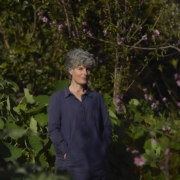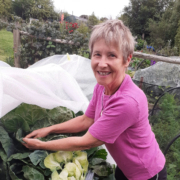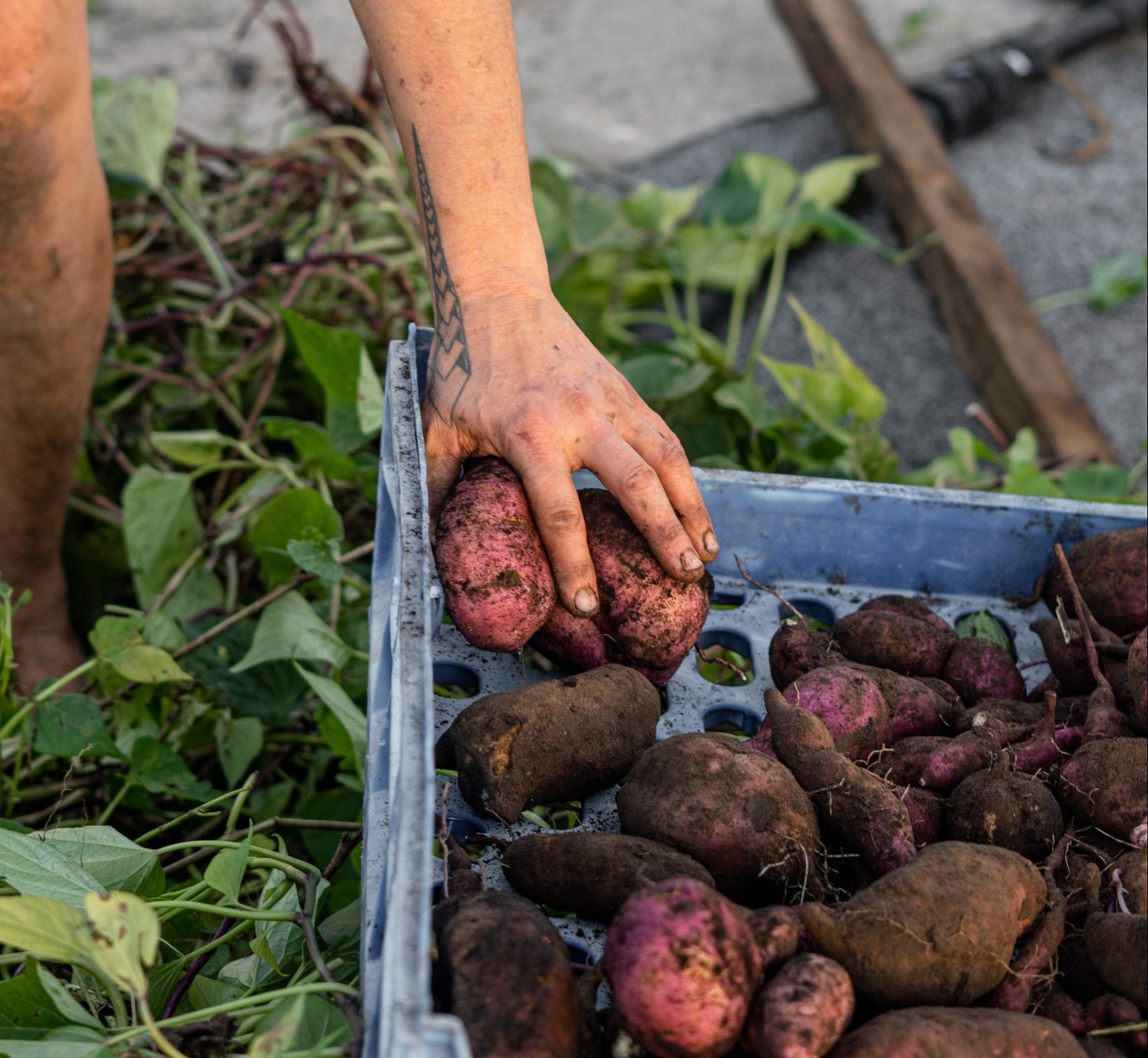Pricing up organics
When it comes to groceries, many of us want to shop organic, but can’t afford the higher price tag. So why is organic food more expensive, and when you add up environmental and health factors, does it really cost us more?
By Bonnie Flaws
Illustrations by Vasanti Unka
We hope you enjoy this free article from OrganicNZ. Join us for access to exclusive members-only content.
Everyone deserves to be able to eat a nutritious diet free of nasty chemicals and spray residues, but for almost all of us, it’s out of reach. Even dedicated organic shoppers in New Zealand have to make compromises, either because of the cost or availability of organic foods. Given affordable options and ready access, I believe most of us would probably favour organic foods all of the time.
But cost more they do, and with rising inflation and geopolitical conflicts impacting on supply chains and energy prices, they are only going to get more expensive. Despite this, there are very good reasons to purchase organic foods whenever your budget can stretch for it.

The case for eating organic
Jodie Bruning, a sociologist with expertise in the public health impacts of pesticides, and a Soil & Health National Council member, says while it can’t be claimed that organics are more nutritious than conventional produce (there is too much variability in soil type, climate and farming practices to make this claim), what is known is that eating organic food dramatically reduces exposure to synthetic, exogenous chemicals. And the risks to health are clear.
“Whether it’s an insecticide, fungicide or herbicide, we’re seeing inflammatory markers worsened. We see neurodevelopmental impacts right through the food chain from the smallest insects to humans in the in vivo studies. One of the biggest costs of pesticides is endocrine (hormonal) disruption.”
In fact, scientists are seeing worrying associations between pesticide exposure – particularly organophosphates – on learning, IQ and behaviour. A major factor driving parents to purchase organic produce in New Zealand today will be to protect their children’s brain health, she says.
“However it’s not just pesticides. Ultra-processed foods, low in nutrition and fibre and high in additive chemicals can also contribute to health problems and degrade the microbiome, leading to neurological issues, including depression. Organic diets help people move away from these food types.”
Reader support keeps us going
Please support our work by joining with a membership subscription (print or digital). Organic NZ is independently published by the Soil & Health Association, a charity devoted to healthy soil, healthy food and healthy people.
Our independent journalism relies on support from people like you!
Paying not to pollute
Another reason to buy organic is to protect the environment and biodiversity. And interestingly, this point illuminates something that goes more or less unacknowledged: that when we buy conventional food, in effect, we end up paying more.
We might pay less at the checkout, but over the long term and in other ways, we still end up paying the price for polluting. Noel Josephson, chairman of Ceres Organics, the country’s oldest organic retailer, explains: “The price on the supermarket shelf is not the true cost of the product – it’s only the economic cost. It doesn’t account for the cost to your health or the damage to the environment – all of those are passed on to the future. That is the key to understanding what it is you’re buying and if it’s good value. If you apply ‘true cost accounting’, organics comes out cheaper than conventional.”

True cost accounting factors in the externalised costs of conventional food production. One example, says Noel, is the amount councils pay to remove agricultural chemicals from the water supply. Another is the cost of health care to treat diseases resulting from toxic exposures. The cost is socialised, or delayed, but we still end up paying.
However, Geoff Kira, a senior lecturer at the School of Health Sciences at Massey University, says food insecurity affects one in five Kiwi families, and many people are paying up to 50 percent of their weekly budget on the rent alone. Such abstract calculations are not realistically going to be a factor in the weekly food shop for many.
“If you apply ‘true cost accounting’, organics comes out cheaper than conventional.”
NOEL JOSEPHSON, CHAIRPERSON, CERES ORGANICS

*Correction: the price quoted above for tinned tomatoes from Commonsense Organics should read $0.57 for 100g. We incorrectly listed the 400g price.
Why organics cost more
Teva Stewart, retail manager at Commonsense, says price generally comes down to the cost of production. Organic production doesn’t rely on chemicals to take care of weeds, so labour costs are higher. They’re also not intensively planted or stocked, so overall yields are lower. These, along with certification, add costs right off the bat. However, organic production is generally just more expensive in New Zealand.
“It can cost more to eat an organic product produced here than one produced overseas and shipped in,” he says. Case in point: a 500ml bottle of imported Spanish extra virgin olive oil costs $7 less than a locally produced one at my local organic shop. Teva also notes that distribution is more costly because we don’t have a rail network, instead relying on trucks, while the volumes of organic products being distributed are vastly smaller than conventional in New Zealand.
Countdown’s assistant manager of organic produce Savilla Manuel says while demand for organic products is growing – sales grew 24 percent year-on-year in the period ending June 2021 – the scale of domestic production is comparatively tiny. Supermarkets are largely reliant on local suppliers, so things like adverse weather events, labour shortages and import restrictions have a significant impact on supply. Compounding the problem, organic land conversion takes about three years, a time commitment many growers are hesitant to make, she says. “This effectively reduces the number of larger growers within the industry from making the move to convert to organic, which otherwise would help to improve overall supply and reduce prices.”

How low can they go?
Organic retailers will tell you that they already do all they can to offer organic goods at the lowest price. Due to bulk importation, certain items, such as tinned tomatoes, can be offered on special regularly. However, other types of food, such as root vegetables, will generally always be the same price, Teva says. “Things like carrots, beetroot and potatoes, which are in the ground for a long time and require a lot of weeding, they are always going to be $8 per kg in an organic store because those labour costs are there.”
Noel Josephson says the market conditions that apply to conventional usually apply to organic. For example, New Zealand is competitive at producing wine, apples and kiwifruit. Organic production of these goods can also be done competitively and at scale, he says. “The point I’m making is that there is not much that is going to change from market to market, which isn’t already there, which is really caused by other factors such as the growing environment, the trading environment or the government regulations,” he says. But that doesn’t mean the conditions for lower prices can’t be brought about. This is happening now in the European Union where 25 percent of all agriculture is set to go organic by 2030, he says.
BioGro chief executive Donald Nordeng agrees, and says if the country could get over the idea that government shouldn’t support farmers directly, there would be more likelihood prices could come down. “We could do something amazing, but currently we don’t have price support, which I think is a misnomer,” he says. The EU is subsidising half the cost of certification and providing crop insurance for organic farmers, incentivising organic conversion. There is also money available for farming infrastructure, such as fencing, riparian planting and tree planting. “[There are] all sorts of improvements. Billions and billions of dollars that are being earmarked for [organic] agricultural production. Here we don’t have any regulation yet so the government really can’t take action.” The Organic Products Bill is currently making its way through the house, and when the regulation is in place, it will bring greater investment and funding to grow the sector, he says.
Noel says it’s something the country should aspire to. “It’s definitely in New Zealand’s interest. If we went organic, we would get a greater return for the same amount of land, we would have a less polluted environment, and it could support the regions.”
Bonnie Flaws is a freelance journalist and writer based in Napier. She grows an organic vegetable garden and shops organic wherever her budget allows.




